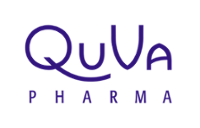- USP <71> Validated Testing: We test EVERY BATCH, EVERY TIME for sterility and the batch is held for the duration of the test prior to release. Product is never released at risk. Each shipment comes with a Certificate of Analysis that shows the results.
- Method Suitability: Every formulation undergoes method suitability testing using the full USP panel of 6 organisms to ensure the methodology is valid.
- We have Strict Sampling Guidelines Compliant with the USP <71> requirement, the appropriate sample size is collected at multiple points in the production process and is representative of the batch size.
- Endotoxin testing is performed on EVERY BATCH, EVERY TIME and the batch is held for the duration of the test prior to release. Product is never released at risk. Each shipment comes with a Certificate of Analysis that shows the results.
- Endotoxin Limits: these are established for every individual formulation based on the maximum dosage per hour, average patient weight and route of administration in accordance with USP <85>.
- Endotoxin Method Validation: this is performed on every formulation to ensure that interfering factors in the formulation do not inhibit the functionality of the test and cause false negatives and that the sensitivity of the test is maximized.
- Potency testing is done on EVERY BATCH, EVERY TIME and the batch is held for the duration of the test prior to release. Product is never released at risk. Each shipment comes with a Certificate of Analysis that shows the results.
- Potency Range: Potency tested prior to release and expected to meet approved specifications following USP.
- Potency Testing Method: Performed using high performance liquid chromatographic analysis to ensure potency is accurate and precise.
- QuVa has a Comprehensive Stability Program. Each product is assigned a BUD established through a comprehensive stability testing program that meets 503B requirements. QuVa Pharma has established a program to extend BUDs and this is accomplished through the stability program where product is tested to specification over the desired BUD timeline.
- QuVa’s product catalog lists the BUD of each product and over 93% of the products we sell have a 90-day BUD. Our customer research has shown that at least a 60-day BUD is a very desirable benefit.
We see major change in the enforcement of quality expectations by the FDA, and growing confidence by hospitals in the outsource compounding industry. With the passing of the Drug Quality and Security Act (“DQSA”) in 2013, and subsequent release of FDA guidance documents on expectations of current Good Manufacturing Practices (“cGMP”), the FDA has been educating both outsource compounding manufacturers, and the hospitals, on what the minimum standards are that the compounding industry will operate under. In the past 18 months, we have seen the FDA increasingly hold outsource manufacturers accountable to those cGMP standards to ensure the health of patients who are prescribed medications in a hospital setting.
Overall, this has improved the quality of output the industry as a whole produces. We also see hospitals gaining confidence in outsource manufacturers largely as a result of the FDA’s diligence in enforcement. Health systems that undertake 503B activities are also becoming increasingly cognizant of their requirement to demonstrate cGMP compliance. This is prompting some to consider outsourcing as a risk mitigation strategy. From a patient perspective, this approach will lead to better outcomes and improved care.
Hospital pharmacies and certain licensed compounding pharmacies compound patient-specific preparations by individual prescriptions. This is done in instances where a patient may be allergic or intolerant of an ingredient, such as dyes, preservatives or sugars, commonly found in the commercially manufactured form of a medication. Different dosage forms can also be done in this application. For example, if an elderly person or child can’t swallow a pill, the medicine can be compounded into a liquid form or topical gel that can be absorbed into the bloodstream through the skin for a better patient experience.
Because we operate 503B facilities, our focus at QuVa is non-patient specific, meaning we compound medications that hospitals and healthcare facilities can anticipate being used across a broad spectrum of their patient population. Our ability to do this is increasingly important for two key reasons –a greater commitment by healthcare facilities to provide patients with optimum treatment by having the hospital pharmacist more involved in-patient care, and drug shortages
